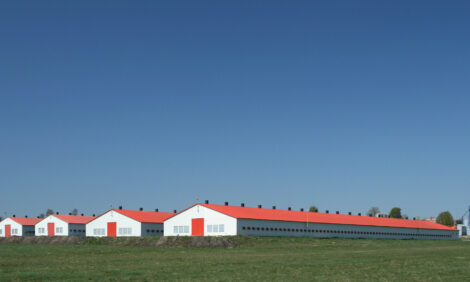



Rise in Salmonella Cases Under Investigation
UK - The Food Standards Agency (FSA) and Health Protection Agency (HPA) are investigating a recent increase in the number of cases of a certain type of salmonella in England and Wales. The source is thought to be imported eggs.The increase in cases of Salmonella Enteritidis phage type (PT) 14b, since mid-August 2009, was noted by the HPA as part of its monitoring of infectious diseases.
A total of 443 cases of S. Enteritidis (PT) 14b have been reported to the HPA this year, compared with 137 cases in 2008. Fourteen clusters of cases in England and Wales are currently being investigated to determine if there is a common source of infection. A total of 144 cases of S. Enteritidis (PT) 14b have been associated with these 14 clusters.
The clusters have been linked to a number of different catering establishments and one care home. Although there is no conclusive evidence yet, the clusters may be linked to eggs sourced from outside the UK and used in these establishments. Investigations are ongoing into a possible link to eggs sourced from an approved establishment in Spain, and the UK and Spanish authorities are working in close cooperation to investigate this.
In the meantime, the Agency is reminding caterers and other food businesses how to cook and prepare eggs safely. Eggs – advice to caterers is available for download [click here]. Safer food, better business (SFBB) is also available to help catering businesses comply with food hygiene regulations that were introduced in January 2006 [click here]. SFBB packs have been translated into other languages to help producers of international cuisines and versions are also available for child-minders and care homes.
Since January 2009, all EU member states are required to have a Salmonella National Control Programme and carry out testing for salmonella in laying flocks. Although this programme intends to reduce the incidence of salmonella in laying flocks and the egg market, it cannot guarantee complete absence. Eggs from flocks testing positive for salmonella (specifically S. Enteritidis or S. Typhimurium) are not allowed to be sold directly to consumers. Most of these eggs are instead sent for pasteurisation.
Salmonella is one of the most common causes of food poisoning in the UK and is sometimes found in unpasteurised milk, raw meat and poultry, as well as eggs and products containing raw egg. The majority of eggs on sale in shops in the UK are of UK origin, and recent surveys have shown there is a very low incidence of salmonella in UK eggs. Even so, it is impossible to guarantee that any egg will be free from salmonella, whatever the source or brand. Therefore it is important that people continue to take care to ensure the safe storage, preparation and cooking of eggs.








